Bryan Caplan's Blog, page 42
October 24, 2019
Rod Long on the Plight of the Worker
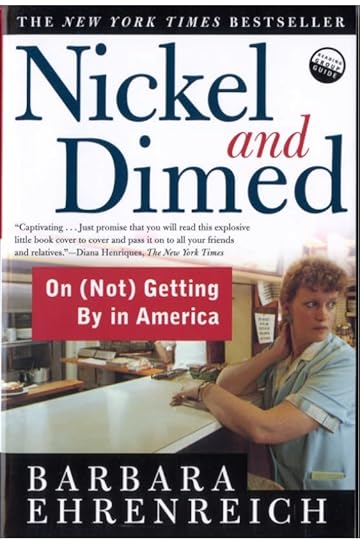
In response to my Nickel and Dimed posts, my old friend Roderick Long referred me to his original review of the book. Highlights of Rod’s review:
Ehrenreich went “undercover” to document the lives of the working poor and the Kafkaesque maze of obstacles they face: the grindingly low wages; the desperate scramble to make ends meet; the perpetual uncertainty; the surreal, pseudo-scientific job application process; the arbitrary and humiliating petty chickenshit tyrannies of employers; the techniques of int...
October 23, 2019
Are We Getting Smarter?: Thoughts on the Flynn Effect
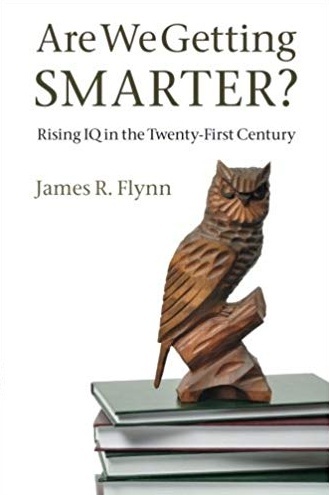
Seven years ago, I wrote the following book review for the Wall St. Journal. I posted highlights with commentary before, but here’s the whole thing.
Review: Are We Getting Smarter? Rising IQ in the Twenty-First Century by James R. Flynn.
James R. Flynn, one of the most influential figures in modern psychology, is not a psychologist. He’s a trained political philosopher. He broke into psychology in his fifties by painstakingly documenting the now-famous “Flynn effect” – the strong tendency of measured intelligence (“IQ” or “g”) to r...
the WallAre We Getting Smarter: Thoughts on the Flynn Effect

Seven years ago, I wrote the following book review for the Wall St. Journal. I posted highlights with commentary before, but here’s the whole thing.
Review: Are We Getting Smarter? Rising IQ in the Twenty-First Century by James R. Flynn.
James R. Flynn, one of the most influential figures in modern psychology, is not a psychologist. He’s a trained political philosopher. He broke into psychology in his fifties by painstakingly documenting the now-famous “Flynn effect” – the strong tendency of measured intelligence (“IQ” or “g”) to r...
the WallOctober 22, 2019
The Roots of Inertia
 Why don’t low-skilled workers try harder to better their condition? While this might seem a neoliberal question, it weighs on Barbara Ehrenreich’s mind:
Why don’t low-skilled workers try harder to better their condition? While this might seem a neoliberal question, it weighs on Barbara Ehrenreich’s mind:
I was baffled, initially, by what seemed like a certain lack of get-up-and-go on the part of my fellow workers. Why didn’t they just leave for a better-paying job, as I did when I moved from the Hearthside to Jerry’s?
She starts with some textbook economic answers. There’s transaction costs:
Part of the answer is that actual humans experience a little more “f...
October 17, 2019
Conformity and Perspective in Nickel and Dimed
 As you might expect, Barbara Ehrenreich didn’t like working at Wal-Mart. Why not? Low pay is a big part of the story, but it’s the demand for conformity that really rubs her the wrong way:
As you might expect, Barbara Ehrenreich didn’t like working at Wal-Mart. Why not? Low pay is a big part of the story, but it’s the demand for conformity that really rubs her the wrong way:
With competence comes a new impatience: Why does anybody put up with the wages we’re paid? True, most of my fellow workers are better cushioned than I am; they live with spouses or grown children or they have other jobs in addition to this one. I sit with Lynne in the break room one night and find out this is only a part-ti...
October 16, 2019
A Coupon for Kids
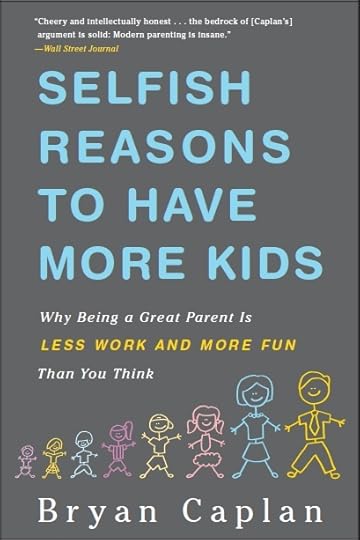
Imagine I offer you a coupon for “CHOCOLATE – 25% off!” and you respond…
You fail to consider that chocolate is fattening! Also, it can kill dogs. And it’s linked to acne. Furthermore, many people are diabetic. And lots of people are too poor to buy chocolate even if it’s 50% off. I also have to tell you that chocolate melts. Sometimes it makes your hands sticky. And when you’re hands are covered with melted chocolate, you might get ugly stains on your clothes. And dry cleaning costs money.
I trus...
October 14, 2019
Build, Barbara, Build: Reflections on Nickel and Dimed

I finally read Barbara Ehrenreich’s Nickel and Dimed, and was pleasantly surprised. Her runaway best-seller is what researchers call “radical ethnography”; to study low-skilled workers in America, Ehrenreich became a low-skilled worker in America. Ehrenreich mostly just walks us through her experiment: how she found work, where she lived, what the jobs were like, how she made ends meet. While there’s ideological commentary throughout, she’s less preachy than most of her competition. My f...
October 10, 2019
They Know Better
Moral reasoning is hard. It’s so hard, in fact, that most people do little moral reasoning. Instead, as Daniel Kahneman would expect, they perform a mental substitution. Rather than wonder, “What’s morally right?,” they ask, “What’s socially acceptable?”
In decent societies, this seems fairly harmless. When your society is even selectively evil, however, the substitution is disastrous. Strictly following standard social norms in Nazi Germany, Stalinist Russia, or Maoist China is murder.
...October 9, 2019
Mao Is Murder
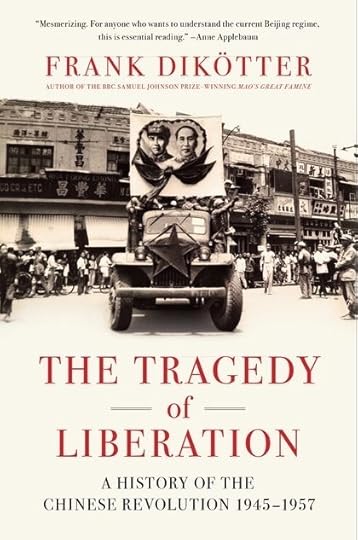
Mao Zedong’s most famous aphorism could well be, “Revolution is not a dinner party.” But perhaps he should have said, “Revolution is a dinner party where the main course is human flesh.” Here’s one gripping episode from Frank Dikötter’s The Tragedy of Liberation.
In April 1948, the communists advanced towards Changchun itself. Led by Lin Biao, a gaunt man who had trained at the Whampoa Military Academy, they laid siege to the city. Lin was considered one of the best battlefield commanders...
October 8, 2019
Poverty: A Ranking of What I’ve Been Reading
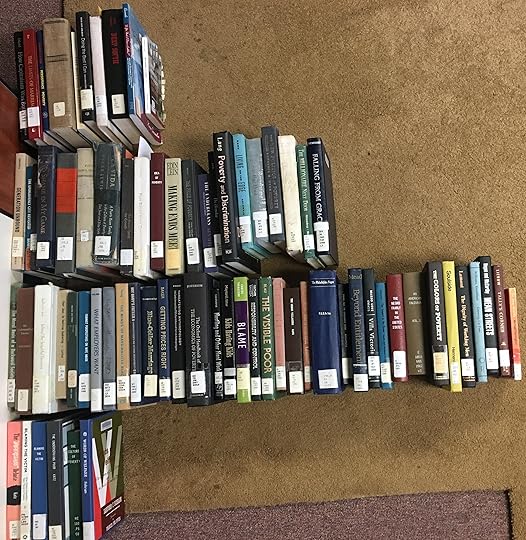
Here’s a hierarchical picture of the books I’ve been reading about poverty during the last nine months. Left-right position means nothing. Vertical row, however, indicates quality.
Top row: These are the books that deeply changed the way I think about poverty. Whether or not I fundamentally agree with the work, I learned fruitful new ways of looking at the facts. The big tan book with the faded spine is The Children of Sanchez by Oscar Lewis.
2nd row: These are highly informative books. ...
Bryan Caplan's Blog
- Bryan Caplan's profile
- 374 followers



